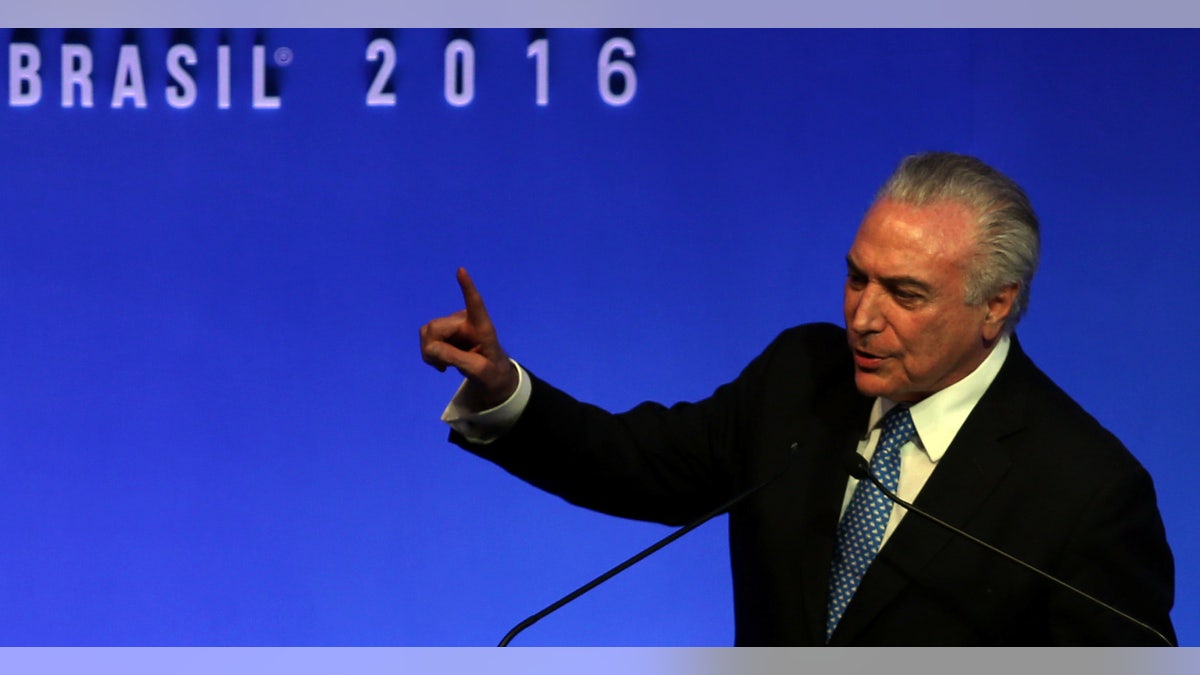
Brazil's President Michel Temer at a meeting with businessmen in Sao Paulo, Brazil, Dec. 12, 2016. (Reuters)
Brazil's President Michel Temer called U.S. President-elect Donald Trump on Tuesday, agreeing to work together to improve business relations between the two largest economies in the Americas, a statement from Temer's office said.
Brazil is keen to explore business opportunities that could open up if Trump follows through on campaign promises to rewrite a trade deal with Mexico.
"Temer and Trump agreed to launch, immediately after the swearing in of the new American president, an agenda for Brazil-U.S. growth," the statement said.
"(Temer) emphasized Brazil's interest in receiving more American investment," the statement added.
Reuters reported last week that Temer planned to call Trump, having sent a telegram of congratulations following his election.
Trump's calls during the campaign to protect U.S. companies by limiting trade worried some Brazilian investors, but the Temer administration, under pressure to rescue an economy stuck in a two-year recession, sees a silver lining for local businesses.
Brazilian industries, benefiting from a weaker real currency could increase their market share in the United States if Trump makes good on his threats to rework or withdraw from the North American Free Trade Agreement with neighboring Mexico and Canada. Trump takes office on Jan. 20.
In Tuesday's call, Trump and Temer agreed to put together teams to work on a mutual growth program from February next year.
According to the statement, Temer said that business leaders from both the United States and Brazil already understood each other well and wanted to work more closely together.
Robson Andrade, head of Brazil's most powerful industrial lobby, the CNI, said Trump could open up opportunities for Brazilian businesses if he drops or re-works U.S. trade partnerships currently being negotiated across the Pacific and with the European Union.
"That will make it easier for Brazil to forge new trade alliances," Andrade told Reuters. "I don't think Trump will cause the economic cataclysm people are talking about."
(Reporting by Anthony Boadle; Additional reporting and writing by Stephen Eisenhammer; Editing by Paul Simao)




















